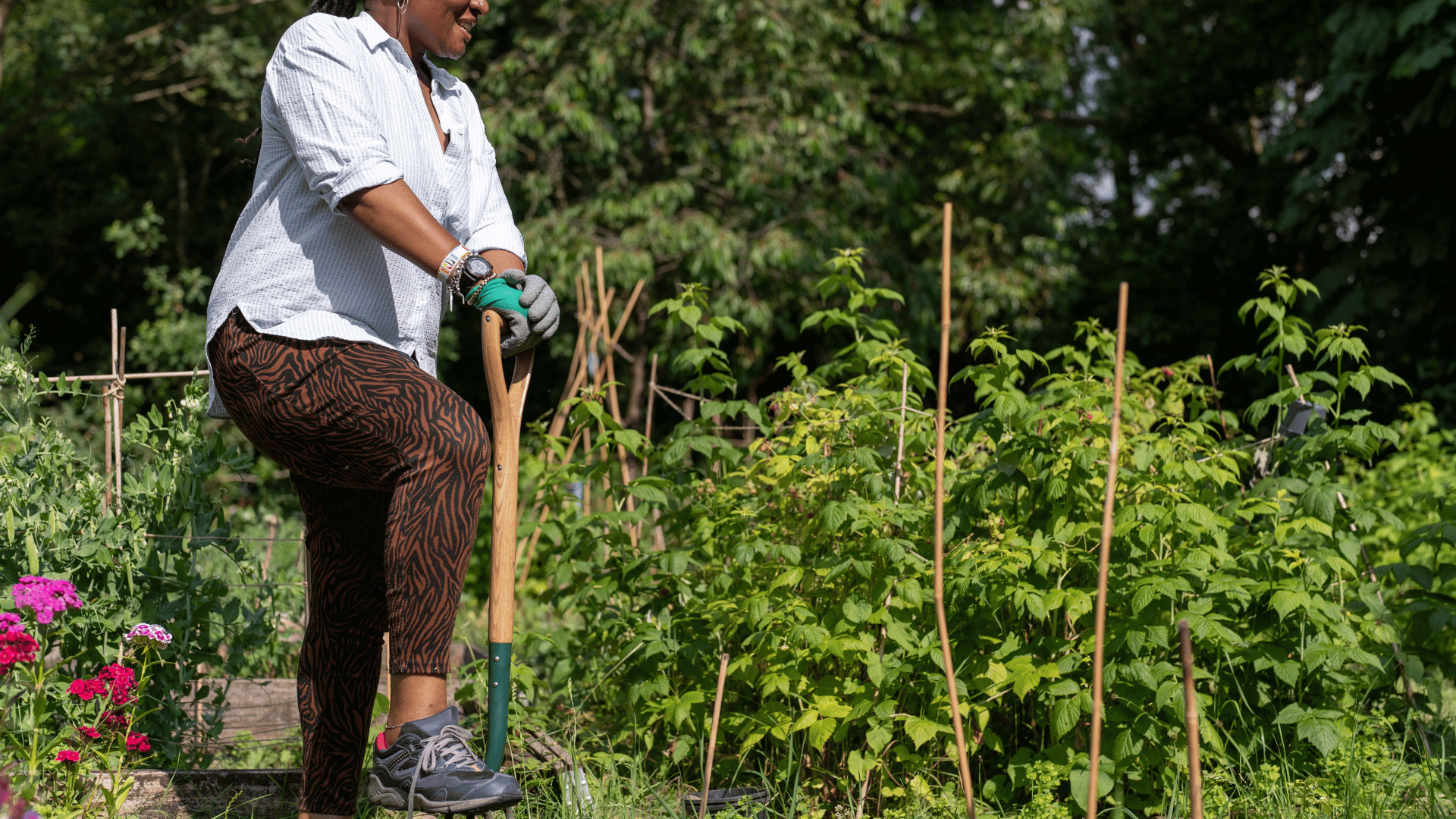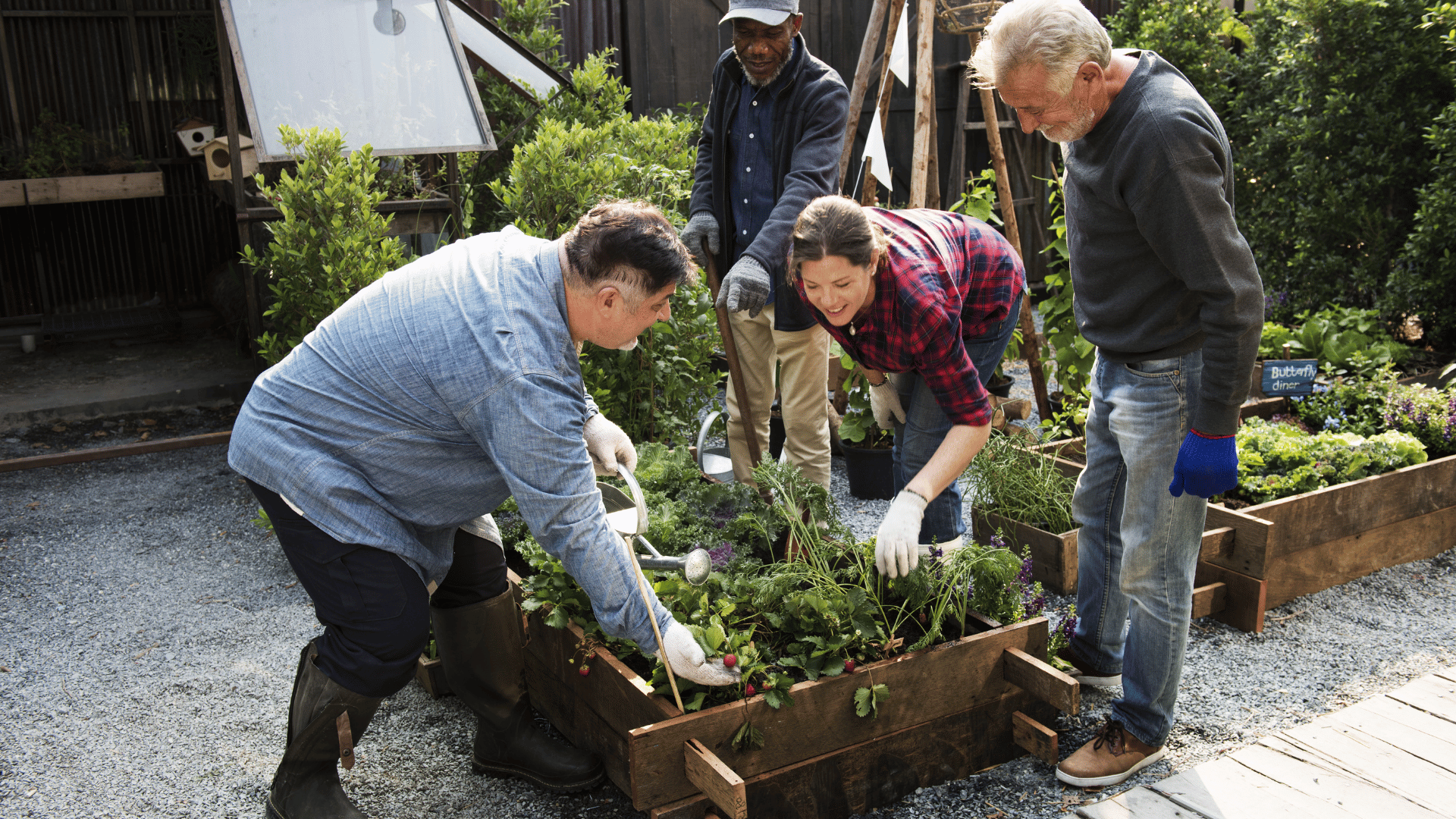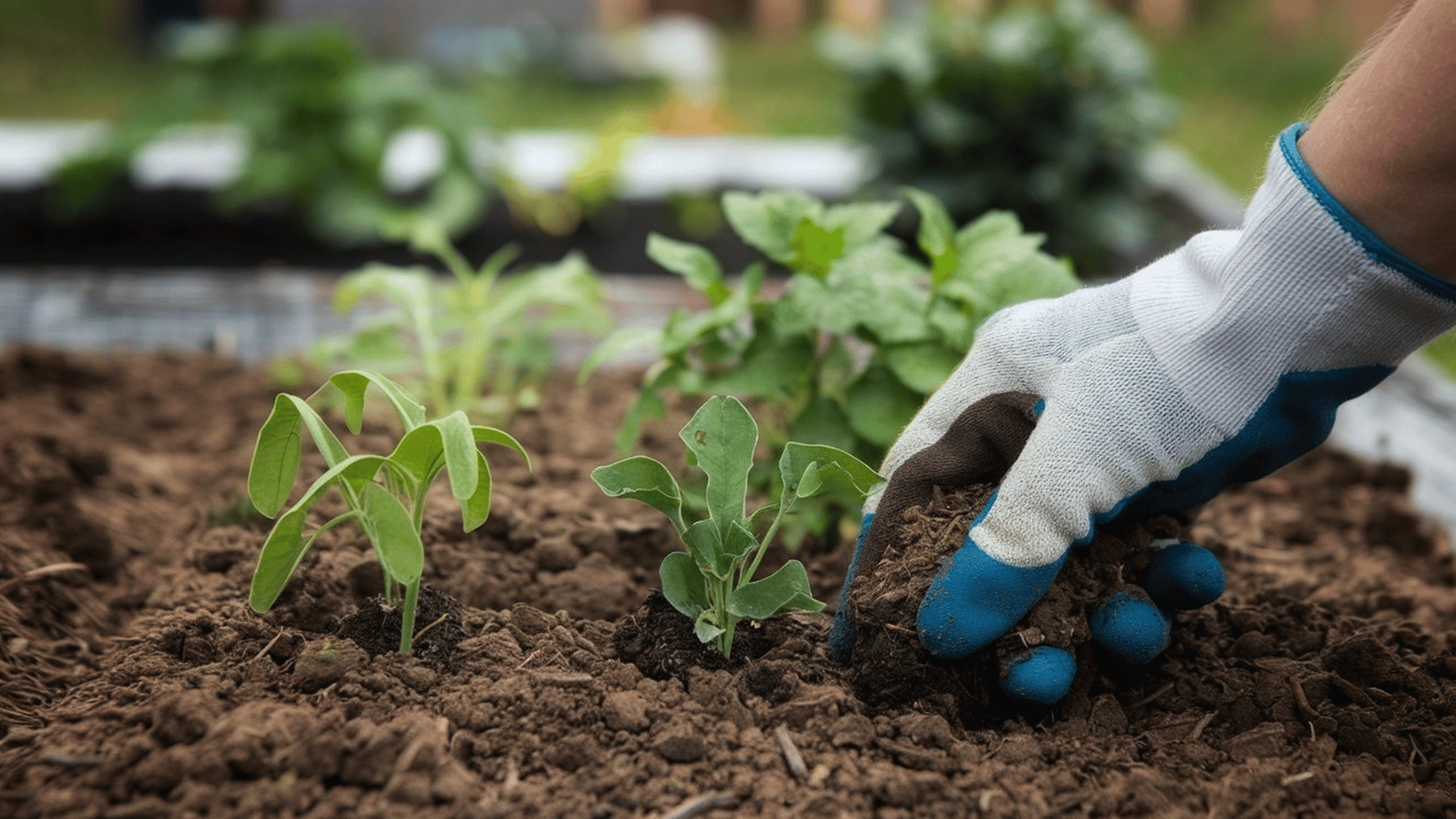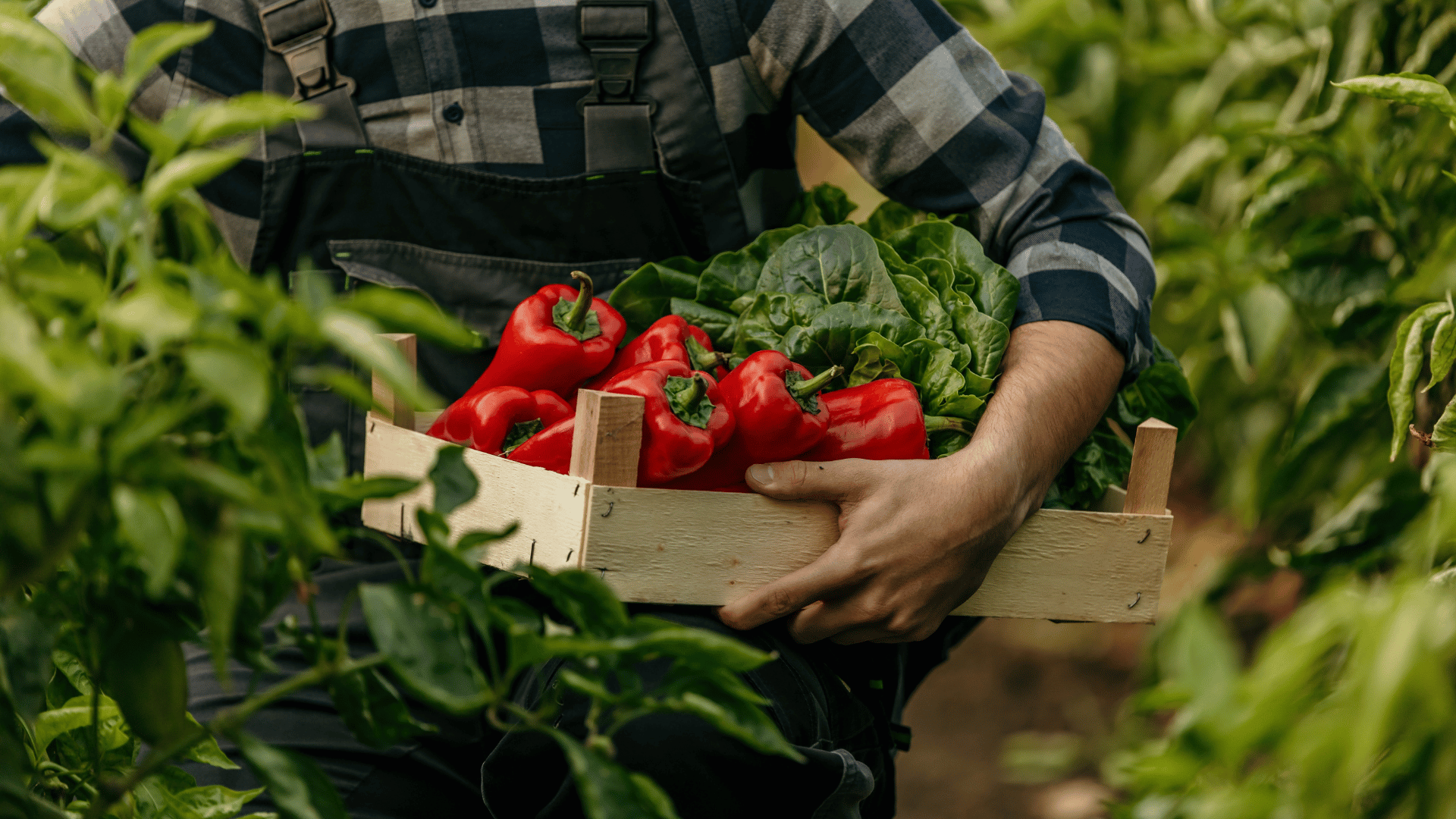The obvious benefit of gardening is providing your home with fresh food or a backyard oasis, but did you know that it could also boost your mental health?
Increased Exercise

Physical exercise is associated with mood boosts and lowered anxiety, and gardening involves a series of functional movements that mimic whole-body exercise. This includes squats, lunges, carrying heavy bags of mulch and other supplies, digging, raking, pushing a mower, and more.
In addition to improving your strength, gardening can also help with balance and flexibility. Movements can also be adjusted and modified depending on areas of strain or soreness. For example, one could use a shovel or rake to support knees when squatting or buy smaller pots or bags of mulch so they’re easier to carry. And, because the movements are varied, there are fewer repetitive injuries compared to structured exercise.
Connecting with the Community

Social connections are important to mental health as they reduce stress, improve resilience, and offer support during difficult times. A strong sense of belonging lowers your risk of depression and anxiety.
In addition to being a peaceful solo activity, gardening is also a great way to connect with the community and make new friends. The gardening community is eager to share expertise, time, and even plants with new gardeners. Master gardeners often volunteer to help educate fellow gardeners, and you could even find a local community garden plot to harvest plants alongside your neighbors.
Connecting with Nature

Spending time outdoors has proven to boost mental and physical health. For example, humans tend to breathe more deeply when outside, which improves their lungs, digestion, immune response, and oxygen levels in the blood. Time outdoors also reduces heart rate, muscle tension, and blood pressure while increasing vitamin D levels.
Gardening also generally makes you more aware of nature’s processes, such as the first and last frosts of the season, the quantity of rain, temperatures, where the sun is located throughout the day, the cycles of the seasons, etc.
Improved Diet

Gardening can yield the healthiest and freshest foods available, which can positively affect your mental health, as some studies have shown that dietary changes can help treat depression. Studies show the benefits of a “Mediterranean” diet, which involves consuming minimally processed whole foods—precisely the types of food that your garden will yield.
Additionally, different vegetables include a variety of nutrients and health benefits. For example, peppers have anti-inflammatory properties and can reduce heart disease, tomatoes are high in an antioxidant that may reduce prostate cancer risk, sweet potatoes contain an antioxidant that may help slow the aging process and reduce the risk of some cancers, spinach may boost your immune system, and broccoli protects your body’s cells from damage.
Mindfulness Practices

The practice of gardening also provides the opportunity for mindfulness lessons. For example, it teaches us about practicing acceptance, patience, being present, letting go of control, trusting natural processes, and moving beyond perfectionism. No matter how carefully planned and executed a garden is, there are countless unpredictable factors that could impact your yield, including inclement weather, pests, and rodents. Surrendering to the unpredictability can help us shake perfectionist tendencies.
Gardening also challenges us to develop a “growth mindset”, meaning we assume that we’re constantly learning and mistakes are viewed as opportunities rather than as a “failure”.







